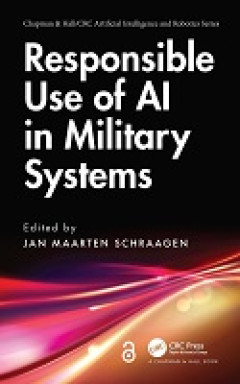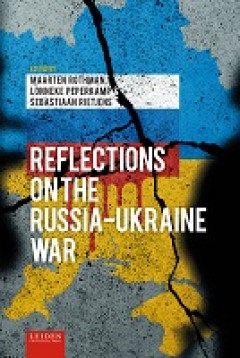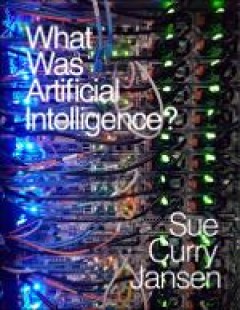Ditapis dengan

E-book What Was Artificial Intelligence?
When it was originally published in 2002, Sue Curry Jansen’s “What Was Artificial Intelligence?” attracted little notice. The long essay was published as a chapter in Jansen’s Critical Communication Theory, a book whose wisdom and erudition failed to register across the many fields it addressed. One explanation for the neglect, ironic and telling, is that Jansen’s sheer scope as an in…
- Edisi
- -
- ISBN/ISSN
- -
- Deskripsi Fisik
- 37 hlm
- Judul Seri
- -
- No. Panggil
- 006.3 CUR w
E-book Pathways in Decentralised Collective Bargaining in Europe
One of the main trends in labour relations across Europe – started already in the 1980s – is “decentralisation” in collective bargaining at the company level. This involves a shift from multi-employer bargaining to single-employer bargaining with trade unions or other workers representatives (Marginson, 2015; oecd, 2018; Traxler, 1995; Visser, 2016). This development continued in the la…
- Edisi
- -
- ISBN/ISSN
- 9789048560240
- Deskripsi Fisik
- 248 hlm
- Judul Seri
- -
- No. Panggil
- 331.8 TRO p
E-book Manual for Arabica Cultivation
Coffee was declared the national drink of the then colonized United States by the Continental Congress, in protest of the excessive tax on tea levied by the British crown. Today, coffee is a global industry employing more than 20 million people. It ranks second to petroleum in terms of worldwide trade. With over 400 billion cups consumed every year, coffee is the world's most popular beverage. …
- Edisi
- -
- ISBN/ISSN
- -
- Deskripsi Fisik
- 219 hlm
- Judul Seri
- -
- No. Panggil
- 633.7 KUI m
E-book Revolutionary Worlds : Local Perspectives and Dynamics during the Indo…
cursory glance at Dutch historiography as it stands today proves this point. Most recently, scholars have homed in on the particularly violent nature of decolonization and its so-called ‘extreme’ properties. On the one hand, this has been occasioned by the demands put forth by survivors and their relatives that former colonial empires reco…
- Edisi
- -
- ISBN/ISSN
- 9789048556861
- Deskripsi Fisik
- 538 hlm
- Judul Seri
- -
- No. Panggil
- 959.803 AHM r
E-book E-book The Monastery Rules : Buddhist Monastic Organization in Pre-Mod…
Monasteries traditionally played a large role in the lives of ordinary people in Tibet. To date, however, relatively little is known about the role of these monasteries and their inhabitants in Tibetan society. Still, the impact of monastic Buddhism on other expressions of Buddhism as well as on a wide range of aspects of Tibetan culture has been tremendous. By contrast, whereas Christian monas…
- Edisi
- -
- ISBN/ISSN
- 9780520297005
- Deskripsi Fisik
- 300 hlm
- Judul Seri
- -
- No. Panggil
- 294.3 JAN t

E-book Responsible Use of AI in Military Systems
Artificial Intelligence (AI) is widely used in society today. The (mis)use of biased data sets in machine learning applications is well?known, resulting in discrimination and exclusion of citizens. Another example is the use of non?transparent algorithms that can’t explain themselves to users, resulting in the AI not being trusted and therefore not being used when it might be beneficial to us…
- Edisi
- -
- ISBN/ISSN
- 9781032524306
- Deskripsi Fisik
- 387 halaman
- Judul Seri
- -
- No. Panggil
- 006.3 SCH r

E-Book Reflections on the Russia-Ukraine War
The Russia-Ukraine war is a multifaceted beast. It ranges from fighting on the ground to high diplomacy, from domestic anti-war protests to international weapon supplies, from justification through sham referenda to coercion via economic sabotage, and from operational misdirection to covering up war crimes. There are close connections between these facets: the collapse of a front leads to the d…
- Edisi
- -
- ISBN/ISSN
- 9789087284343
- Deskripsi Fisik
- 553 halaman
- Judul Seri
- -
- No. Panggil
- 355.02 ROT r

E-Book What Was Artificial Intelligence?
When it was originally published in 2002, Sue Curry Jansen’s “What Was Artificial Intelligence?” attracted little notice. The long essay was published as a chapter in Jansen’s Critical Communication Theory, a book whose wisdom and erudition failed to register across the many fields it addressed. One explanation for the neglect, ironic and telling, is that Jansen’s sheer scope as an in…
- Edisi
- -
- ISBN/ISSN
- 9781951399061
- Deskripsi Fisik
- 37 halaman
- Judul Seri
- -
- No. Panggil
- 006.03 CUR w
E-book Time and the Ancestors : Aztec and Mixtec Ritual Art
The title of our book pays homage to a classic anthropological monograph: Time and the Other by Johannes Fabian (1983). That critical work – unfortunately lit-tle used in studies of the ancient or indigenous Americas – examined the way in which the dominant party in an intercultural encounter tends to situate (to construct and to interpret) ‘the Other’, i.e. colonised or otherwise margi…
- Edisi
- -
- ISBN/ISSN
- 9789004340527
- Deskripsi Fisik
- 646 hlm
- Judul Seri
- -
- No. Panggil
- 972 JAN t
E-book Trade and Employment : From Myths to Facts
Those numbers, however, do not indicate that interviewees have an entirely negative perception of globalization. Indeed, evidence based on surveys that make a distinction between growth and employment impacts of globalization reveals that a majority of respondents in industrialized countries believes in the positive growth effects of globalization that are so often emphasized in the public deba…
- Edisi
- -
- ISBN/ISSN
- 9789221253211
- Deskripsi Fisik
- 318 hlm
- Judul Seri
- -
- No. Panggil
- 381 JAN t
 Karya Umum
Karya Umum  Filsafat
Filsafat  Agama
Agama  Ilmu-ilmu Sosial
Ilmu-ilmu Sosial  Bahasa
Bahasa  Ilmu-ilmu Murni
Ilmu-ilmu Murni  Ilmu-ilmu Terapan
Ilmu-ilmu Terapan  Kesenian, Hiburan, dan Olahraga
Kesenian, Hiburan, dan Olahraga  Kesusastraan
Kesusastraan  Geografi dan Sejarah
Geografi dan Sejarah